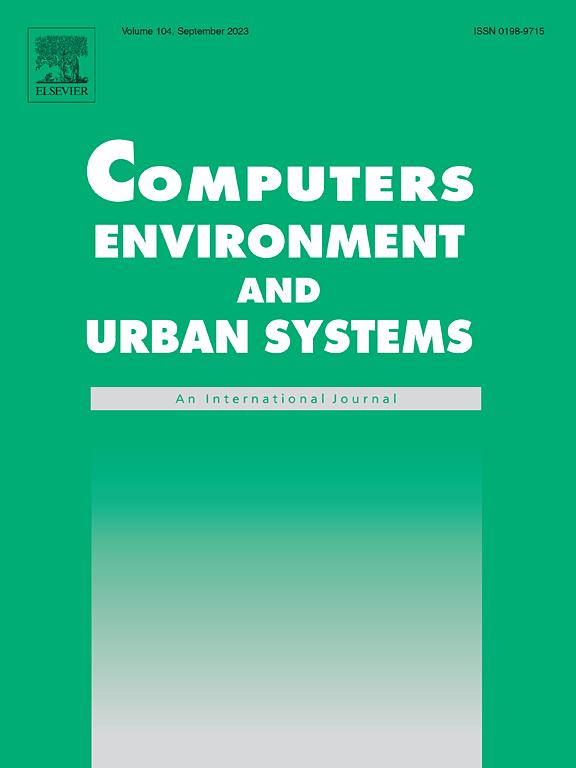Does co-development facilitate achieving useful planning tools? A socio-technical approach to the development of information model-based land use planning in Finland
IF 7.1
1区 地球科学
Q1 ENVIRONMENTAL STUDIES
Computers Environment and Urban Systems
Pub Date : 2025-04-17
DOI:10.1016/j.compenvurbsys.2025.102291
引用次数: 0
Abstract
The digitalization of urban planning entails a shift to information model-based planning, where plans are produced in a machine-readable and interoperable format. In Finland, a nationally interoperable information model for land use plans has been applied for the first time to digital planning tools in the recently completed project KAATIO. In this article, we apply socio-technical approach to assess how co-development in this project was perceived by municipal planners and software developers, and how did the tools developed meet the needs of planners and planning practice. The results show that a technology-driven culture dominates the national development and hampers the socio-technical approach. Despite the challenges, co-development is beneficial for both software developers and municipal actors. In conclusion, we argue that, in this context, empowering users, facilitating the discussion on information model-based planning, future-oriented understanding of planning tasks, and accepting the diversity of practices while harmonizing the plan data are essential for promoting human factors in the development.
共同开发是否有助于实现有用的规划工具?芬兰基于信息模型的土地利用规划发展的社会技术方法
城市规划的数字化需要向基于信息模型的规划转变,其中规划以机器可读和可互操作的格式生成。在芬兰,在最近完成的KAATIO项目中,土地利用计划的全国互操作信息模型首次应用于数字规划工具。在本文中,我们运用社会技术方法来评估市政规划者和软件开发商如何看待该项目中的共同发展,以及开发的工具如何满足规划者和规划实践的需求。结果表明,技术驱动型文化主导了国家发展,阻碍了社会技术途径。尽管存在挑战,但共同开发对软件开发人员和市政参与者都是有益的。总之,我们认为,在这种背景下,赋予用户权力,促进基于信息模型的规划讨论,面向未来的规划任务理解,在协调规划数据的同时接受实践的多样性,对于促进发展中的人为因素至关重要。
本文章由计算机程序翻译,如有差异,请以英文原文为准。
求助全文
约1分钟内获得全文
求助全文
来源期刊

Computers Environment and Urban Systems
Multiple-
CiteScore
13.30
自引率
7.40%
发文量
111
审稿时长
32 days
期刊介绍:
Computers, Environment and Urban Systemsis an interdisciplinary journal publishing cutting-edge and innovative computer-based research on environmental and urban systems, that privileges the geospatial perspective. The journal welcomes original high quality scholarship of a theoretical, applied or technological nature, and provides a stimulating presentation of perspectives, research developments, overviews of important new technologies and uses of major computational, information-based, and visualization innovations. Applied and theoretical contributions demonstrate the scope of computer-based analysis fostering a better understanding of environmental and urban systems, their spatial scope and their dynamics.
 求助内容:
求助内容: 应助结果提醒方式:
应助结果提醒方式:


